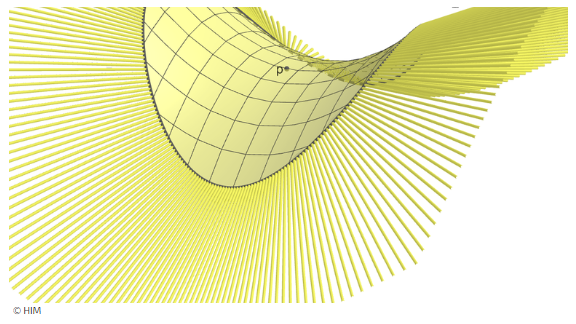
Studying smooth shapes with the aid of differential calculus is at the core of classical differential geometry. The interest in more general objects arises from the incompleteness of the space of smooth shapes and the existence of intriguing groups lacking suitable smooth models.
Metric measure spaces with synthetic curvature bounds provide a suitable generalization of Riemannian manifolds. Analysis in these spaces recovers significant portions of classical Euclidean geometric function theory. This analytical toolbox allows the extension of differential geometric ideas into the broader realm of metric measure spaces.
In this spirit, the conference will concentrate on presenting new results and developments for both smooth and non-smooth spaces.
Lecture by:
- Richard Bamler (UC Berkeley)
- Christine Breiner (Brown University)
- Cornelia Drutu (University of Oxford)
- Katrin Fässler (Jyväskylä University)
- Giada Franz (Massachusetts Institute of Technology)
- Ailana Fraser (University of British Columbia)
- Bernhard Hanke (University of Augsburg)
- Bruce Kleiner (New York University)
- Urs Lang (ETH Zurich)
- Alexander Lytchak (Karlsruhe Institute of Technology)
- Fedor Manin (UC Santa Barbara)
- Damaris Meier (University of Fribourg)
- Chikako Mese (Stanford University)
- Alexander Nabutovsky (University of Toronto)
- Pierre Pansu (Paris-Saclay University)
- Anton Petrunin (Pennsylvania State University)
- Melanie Rupflin (University of Oxford)
- Roman Sauer (Karlsruhe Institute of Technology)
- Antoine Song (Caltech)